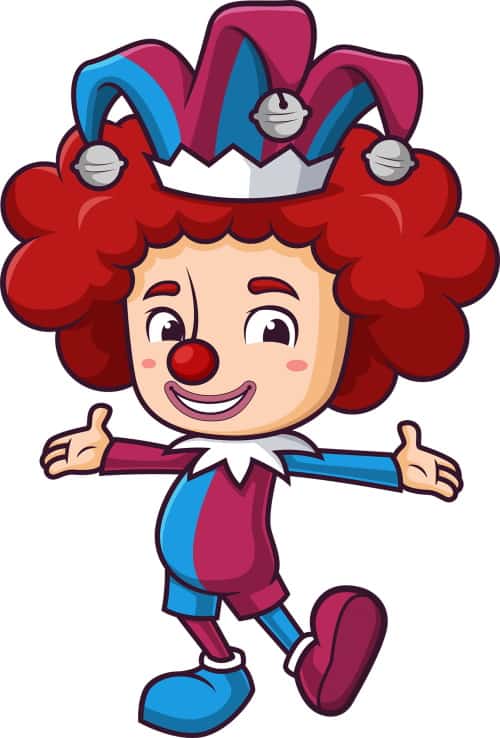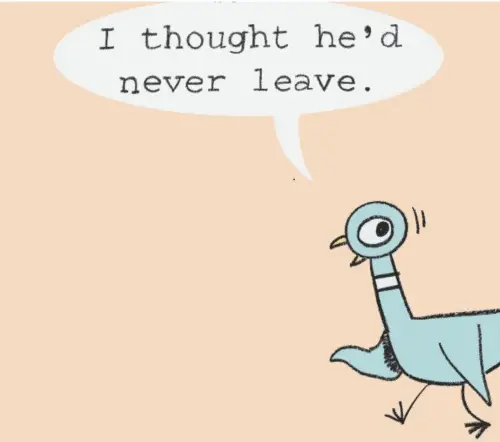
Many parents often wonder if or suppose their child is gifted. And this question of giftedness is frequently presented to teachers in any classroom. If by chance you find yourself the parent or teacher of officially-labeled gifted children, what does that mean? And how does a sense of humor fit into this scenario?
Parents and teachers need to know that gifted children often have a keen sense of humor. In fact, an advanced sense of humor is an identifying factor in determining giftedness. As well, recognizing and using humor appropriately is one form of differentiation in special education for gifted students.
As a public school teacher for many years, I have taught countless ‘official’ gifted children. I also happen to be a parent of a daughter who was identified as cognitively gifted and participated in gifted special education in California schools. One thing I’ve learned from my experience is to appreciate the gifted student’s sense of humor. As such, I’m happy to share some suggestions on the topic!
Contents
What are Affective Characteristics of Gifted Students?
When you think about a gifted student, a certain stereotype probably comes to mind: a kid with glasses, awkward in how he presents himself, with a verbose vocabulary, dressed as if he stepped out of the 1950s, very, very smart, probably makes all As and of course, is motivated and well-behaved.

In some cases, this is an accurate description, and the many who fit this description is what has probably perpetuated the stereotype. But there are plenty of examples that don’t fit into that. For instance, I had one gifted student who was quite social, friendly, trendy, disruptive, and yes, she had a great sense of humor, too.
Gifted kids come in all shapes and sizes: male and female, privileged and poor, cute and odd, tall and small.
But yes, there are some characteristics that are typical of gifted kids too: large vocabularies, rapid learners, good memories, impatient, self-taught, and critical, as in being a perfectionist but also as in prone to questioning things and looking at issues or ideas from multiple perspectives.
Generally, too, gifted kids are problem-solvers and good with figurative and literal puzzles.
Most are quite sensitive, also. They have a very idealistic version of justice, and right and wrong, as well as a highly emotional and curious personality. And many have a very advanced developed sense of humor, which often shows itself quite early, in comparison to their peers.
Because parenting and teaching students with these traits can seem overwhelming (often gifted kids’ behavior manifests in confrontational ways), I recommend books like School Psychologist Christine Fonseca’s Emotional Intensity in Gifted Students: Helping Kids Cope With Explosive Feelings (Amazon linked). The more parents and teachers are informed, the better they can support rather than hinder gifted students at home and in schools.
Is Sarcasm Humor Appropriate with Advanced Students?
Studies agree that most gifted students have an advanced sense of humor. Gifted students are able to understand ambiguity, hidden meanings, and idioms, those parts of ‘gray areas’ of communication that are often found in humor (Source: SpecialNeeds.Com).
But does sarcasm work for gifted students and if so, it is appropriate then? Let’s first look at how sarcasm is defined, so that we are on the same page.
Sarcasm: a mode of satirical wit depending for its effect on bitter, caustic, and often ironic language that is usually directed against an individual (Source: Merriam-Webster)
Many adults use sarcasm in their regular, every day conversation, and it’s become quite popular in movie/film dialogue. Sarcasm is a creative way to deflect and can be used effectively to bring levity to stuffy or awkward situations.
Scientific American (SA) says, “Sarcasm involves constructing or exposing contradictions between intended meanings.” Even though communication experts suggest rarely using sarcasm due to its negative connotations, SA’s study found sarcasm promotes creativity because the brain is forced to interpret tone for meaning. For this reason, they believe it can be a productive tool for businesses and fruitful in well-seasoned relationships.
Taking this into account, then, sarcasm can be a good way to infuse humor with gifted students.
As a long-time teacher, I often used sarcasm with older students, as well as with my gifted elementary-aged kiddos. Sarcasm was a great tool for classroom management with middle schoolers- putting them in their place, so to speak, but in a non-threatening, humorous approach they valued.
With my gifted primary students, they enjoyed figuring out the ‘hidden’ meanings from sarcasm. Since most of their counterparts ‘didn’t get it’, it was like a secret told just for them.
“Sarcasm is the lowest form of wit but the highest form of intelligence,” Irish poet and playwright, Oscar Wilde ~1880s
However, teachers (and parents) must tread lightly because sarcasm is sometimes just thinly veiled insults and can cause trust issues, caution some psychologists. This is especially important to be cognizant of with younger or more sensitive gifted students who might take sarcasm too seriously and don’t have the brain development yet ready for it.
Are Class Clowns Also Gifted Students?

I think just as there is a common stereotype for gifted student, we have a similar picture of what makes a class clown, too. Sense of humor definitely comes on all shapes and sizes.
Gifted students are imagined as quiet and reserved, only caring about study and books. Many assume they won’t be into the latest fashions or fads. Simply because they are above average in intelligence or dedicated to studying when the time comes, many envision “Doc” from Back to the Future in some form.
For class clowns, most of us visualize a student who is not so smart, definitely not academic, acts goofy, maybe utilizes slapstick tactics like tripping or knocking over stuff a lot, is disruptive, and looks a bit silly too with unkempt hair and messy clothes.
We don’t usually equate the class clown with giftedness, but how accurate it that?
In reality, your class clown is often quite gifted! According to Kappa Delta Pi, vol 2, teachers often overlook many gifted students who hide behind disruptive, class clown behavior.
The fact of the matter is that gifted students, because of their advanced sense of humor, are quite entertaining once they figure out what makes their peers laugh.
Especially if left unidentified for an extended period, gifted students resort to class clown status out of boredom. This not the fault of the child who is simply trying to cope with a sometimes torturous situation. The adults in charge of identifying these children sometimes go by past designations of ‘problem child’ and don’t get to the underlying issue.
The drawback of being the class clown for gifted students is that they might not want to also be seen as smart, instead of funny. Gifted students need to be taught that, disruption aside, they can be both smart and funny!
If you have ever tried to do any form of comedy routine, you know that it can be a real challenge. Jokes, puns, and witty observations don’t tell themselves. There is a lot that goes into telling interesting jokes that are actually funny.
Here a just a few of the things that professionals like stand up comedians have to juggle.
- Timing
- Syntax
- Tone
- Context
- Audience participation
- Appropriateness
These class clowns that are able to command a room are actually performing the same juggling act as a professional comedian. There is a lot of skill and dedication to the craft that has to go into a successful comedy act, much less the improv that must happen in a random group of kids.
Funny and smart most definitely can and should go hand in hand. Teaching those gifted students that can bring a class to tears that they can also openly make good grades is an important job for teachers, administrators, and parents.
How to Nurture A Sense of Humor in Special Needs, Gifted Students

The National Association of Special Education Teachers says that gifted students qualify for specialized education (that is, described in an ‘IEP’, individualized education plan) based on their need for advanced instruction and differentiation required in particular categories.
This means that teachers (and parent advocates) must provide a quality education for their funny, gifted students just like they strive for with their other students. How do they do that with humor?
From early on, your gifted students should be presented with material that challenges them to think creatively. From books with idioms to puzzles, riddles, and mysteries, all content including literature, math, and science can be used to foster and promote a sense of humor in your gifted students.
For example, books by Mo Willems are favorites for all young students because they use lots of emphatic words, have a simple story, and many colorful, unforgettable characters. However, your young gifted student, can be encouraged to dig deep to think about and explain just why it’s so darn funny that you ‘don’t let the pigeon drive the bus‘ (linked here to Amazon).

I’ve found that my young gifted students enjoyed hearing and telling jokes, too. I often shared silly jokes such as these about Fun Cat And Dog Jokes For Kids (written by my husband) with all my students, but noticed that gifted students gravitate towards the activity enthusiastically. Afterwards, they were the ones to create their own similar-styled jokes to share with the class at later times.
You can encourage humor in your older gifted students too. For example, gifted teens are adept at discovering the hidden humor in Homer’s The Odyssey or plays by Shakespeare, texts that incorporate puns, double meanings, and irony.
It might seem illogical to us, but another way to encourage humor is by assigning group projects that address and tackle real-world problems, something most older students find engaging. Through dialogue and group research, often gifted teens are able to put humorous slants on these serious issues.
Finally, another suggestion for incorporating humor in your lessons, or fostering a sense of humor in your middle or high school gifted students, is with playwriting.
You can have your students research odd or little known facts about ancient civilizations, and then they can creatively share the information via original plays, incorporating figurative language and other literary devices and techniques (Yes, this is something I did with my advanced 9th graders way back when).

Humor creates an environment that’s more inclusive for your gifted students.
The point is that humor can be used as a tool to push your gifted students. Humor, whether it’s a sarcastic delivery, a funny way of presenting information, or just that as a teacher you use your own sense of humor in your approach to students, makes challenges and difficult material more approachable and accessible for everyone, including your gifted kids. And isn’t this, after all, what your gifted students really need?
Punchline for What You Need To Know About Sense of Humor for Gifted Students
So what’s the punchline? What is it you really need to take away regarding a sense of humor and your gifted students?
- Gifted students come in all shapes and sizes, colors and sexes, and you should try to avoid stereotypes when identifying them.
- You should know that typically gifted students have a well-developed sense of humor, and in fact, this is often a first sign of being gifted.
- Gifted students enjoy sarcasm, but it should be used carefully as it can be considered veiled insults.
- Class clown behavior might be a sign of giftedness in disguise. Since gifted students have a keen sense of humor and are often unchallenged in classwork, they may take on a class clown role as a result.
- Teachers should differentiate education for gifted students just as they do for other special needs learners.
- There are many ways to creatively use humor in instruction that can work for gifted students. Using project-based learning and authentic assessments like playwriting are examples to utilize humor for giftedness.
Having gifted students (or children) can be intimidating and overwhelming for teachers (and parents) but with the right mindset, preparation, and sense of humor, you can not only handle it well, but enjoy your time, too!
